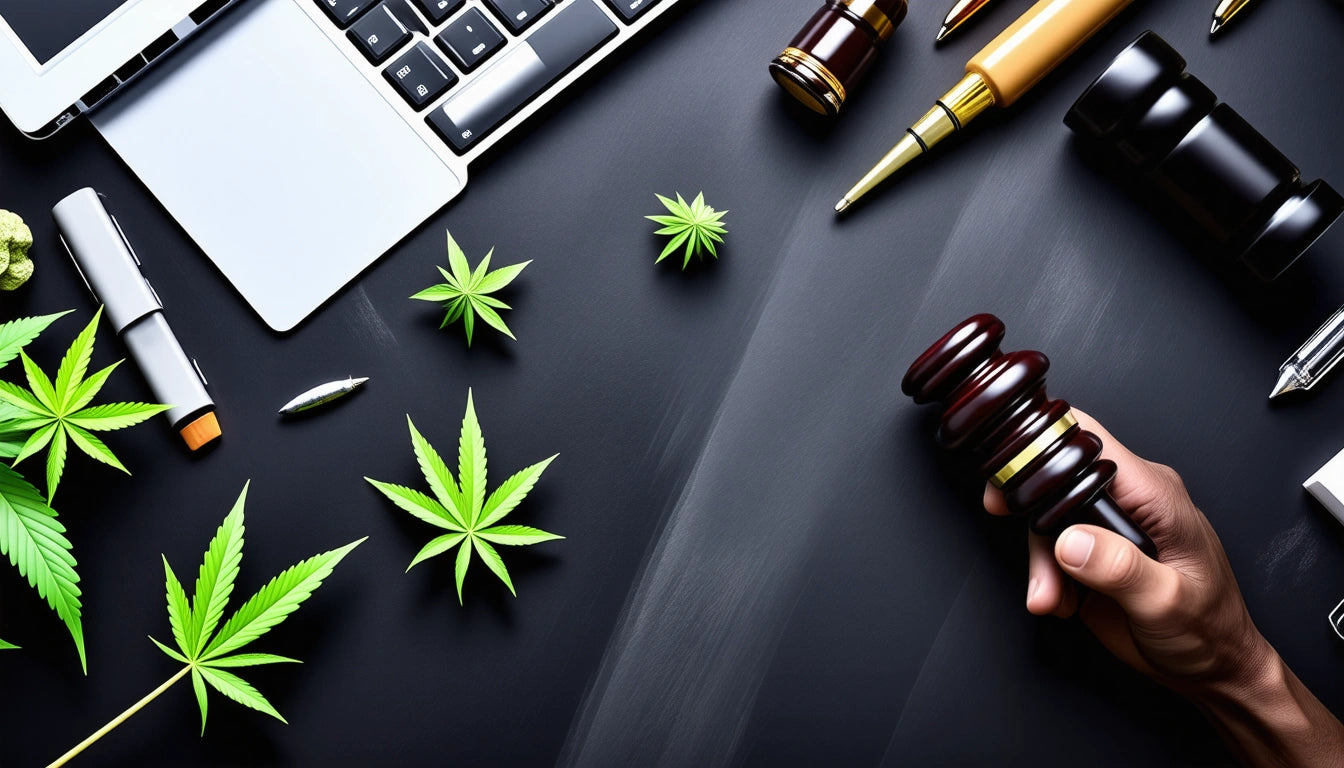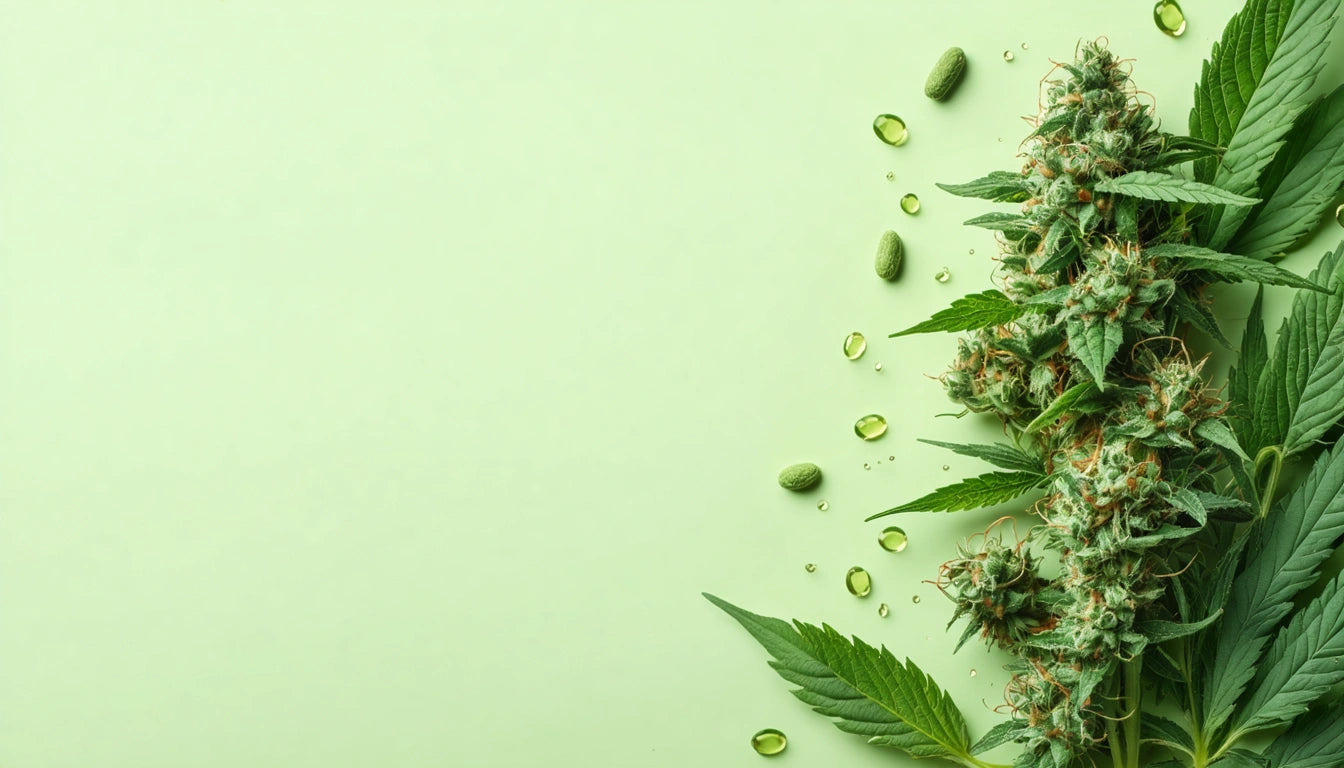Table of Contents
Can Law Enforcement and Legal Professionals Use Marijuana in Legal States?
As marijuana legalization spreads across the United States, a complex question emerges for those in positions of legal authority: can cops smoke weed in legal states? The answer isn't straightforward and varies significantly based on jurisdiction, department policies, and the distinction between state and federal law. This question extends to other legal professionals such as lawyers, judges, and federal employees who operate within the justice system.
Federal vs. State Laws: The Core Conflict
Despite state-level legalization, marijuana remains classified as a Schedule I controlled substance under federal law. This creates an inherent conflict for law enforcement officers who are sworn to uphold both state and federal statutes. Police departments must navigate this contradiction when establishing their policies on off-duty cannabis use.
For federal employees, including FBI agents, DEA officers, and other federal law enforcement personnel, the rules are clearer: can federal employees smoke weed? No, they cannot, even in states where recreational use is legal. Federal agencies maintain zero-tolerance policies aligned with federal law rather than state regulations.
Law Enforcement Policies on Marijuana Use
Department-Specific Guidelines
Local police departments establish their own policies regarding off-duty marijuana use. These policies typically consider:
- State legalization status
- Department values and public perception
- Officer fitness for duty concerns
- Drug testing protocols and frequency
Even in states with legal recreational marijuana, most police departments prohibit officers from using cannabis. The question "can you smoke weed and be a cop?" generally receives a negative answer across most jurisdictions. This restriction extends to questions like "can NYPD smoke weed?" despite New York's recreational legalization.
Safety and Performance Concerns
Law enforcement agencies cite several reasons for prohibiting marijuana use among officers:
- Potential impairment during critical decision-making
- THC's extended presence in the body (detectable weeks after use)
- Inability to determine recent use versus past use in standard testing
- Public trust and credibility concerns
These concerns parallel those in other high-responsibility professions where cannabis use restrictions remain common despite changing legal landscapes.
Legal Professionals and Marijuana Use
For attorneys, judges, and other legal professionals, the question "can lawyers smoke weed?" has a somewhat different answer than for police officers. Bar associations and legal ethics committees in states with legal cannabis have generally taken more permissive stances.
In states like Colorado, Washington, and California, bar associations have issued ethics opinions suggesting that lawyers may use marijuana in compliance with state law without violating professional ethics rules, provided such use doesn't interfere with their professional obligations or ability to represent clients.
However, lawyers who practice in federal courts or whose practice involves federal law face additional complications, as they may be subject to federal regulations that still classify marijuana as illegal.
Drug Testing and Career Implications
For law enforcement officers, regular drug screening is standard practice. THC, the psychoactive component in marijuana, can remain detectable in the body for weeks after use, creating significant professional risk even for occasional users.
The consequences for positive drug tests typically include:
- Suspension or termination
- Disqualification from future law enforcement positions
- Loss of certification or credentials
- Potential impact on pension or retirement benefits
These strict policies reflect not only safety concerns but also the need for public confidence in law enforcement. Just as safety regulations for controlled substances require special packaging to protect vulnerable populations, regulations for officers aim to protect public safety through strict standards.
Regional Variations in Policy
Progressive Jurisdictions
A small number of police departments in states with long-established cannabis legalization have begun revisiting their policies. For example, some agencies in Colorado and Washington have modified their hiring standards to allow for past marijuana use, though current use while employed remains prohibited in most cases.
The question "can police smoke weed in legal states?" still generally receives a "no" answer, but the timeframe for prior use disqualification has shortened in some progressive jurisdictions.
Conservative Approaches
In contrast, many departments, even in legal states, maintain zero-tolerance policies. This is particularly true in:
- States with recent legalization
- Jurisdictions with strong conservative political leanings
- Areas with federal agency partnerships
- Border regions with heightened security concerns
For officers wondering "are cops allowed to smoke weed?" in these regions, the answer remains a firm no, with strict enforcement through regular drug testing.
The Evolving Landscape of Professional Cannabis Policies
As public attitudes toward marijuana continue to shift, policies for law enforcement and legal professionals may gradually evolve. Several factors are influencing this potential change:
- Development of more precise impairment testing technology
- Growing recognition of medicinal cannabis applications
- Potential federal rescheduling or decriminalization
- Recruitment challenges faced by police departments
For now, most law enforcement officers cannot use marijuana even in legal states without risking their careers. Legal professionals generally have more flexibility, particularly in state practice, though federal practitioners face similar restrictions to law enforcement.
The contradiction between state legalization and professional restrictions creates an ongoing tension that will likely require legislative or regulatory resolution as the cannabis landscape continues to mature. Until then, those in legal and law enforcement professions must carefully navigate these complex and sometimes contradictory rules.











Leave a comment
All comments are moderated before being published.
This site is protected by hCaptcha and the hCaptcha Privacy Policy and Terms of Service apply.